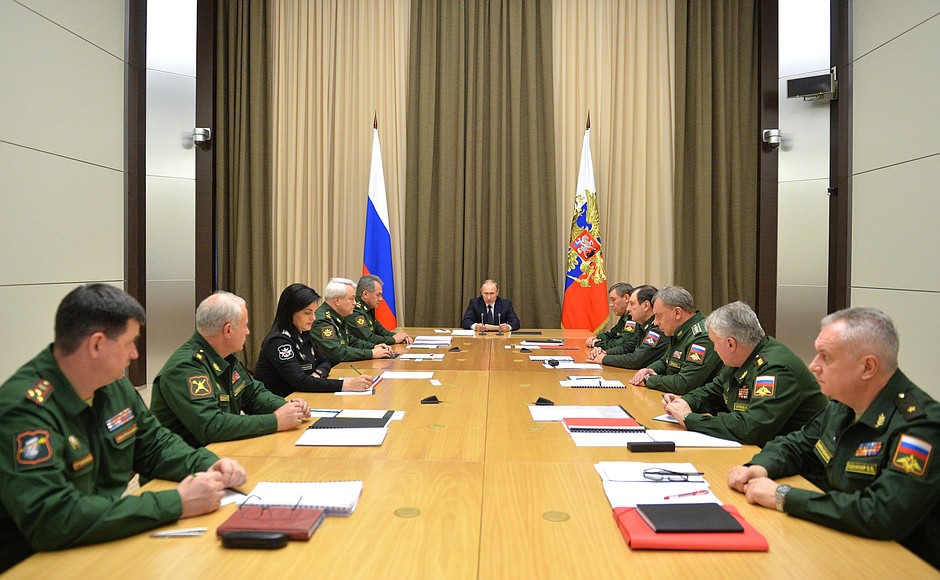
President of Russia Vladimir Putin: Good afternoon, colleagues.
Today, we conclude the latest series of meetings on developing the Armed Forces and strengthening our country’s defence capability. Yesterday, we worked together with industry representatives.
Overall, we have held meetings like this twice a year, in spring and autumn, here in Sochi, and we have seen that they are very productive, give us the chance to concentrate on the main issues in Armed Forces development and the defence industry, review what has been achieved and look at what for various reasons we have not yet achieved, identify these reasons, and make the necessary adjustments to our work.
Based on the results of this week’s work, we will draft the needed instructions for the ministries, agencies, and the Government in general. We will make the necessary adjustments to the work of some of our scientific centres. Overall, I am sure this will bring positive results.
See also
Today, we will also discuss issues that are quite important for Armed Forces development, namely, our military planning system. If you recall, in January 2013, we approved our first-ever national defence plan, which outlined the potential risks and security threats we face, and set out in accordance our planned action in basic areas such as developing the armed forces, carrying out our arms programme, mobilisation preparation, and territorial defence. The plan set tasks for the ministries and agencies at different levels.
It is clear though that the situation is changing, changing fast, and we need to update and clarify our military planning documents. A year ago, we approved the defence plan for the coming five years. Based on this document, the Defence Ministry and relevant federal authorities have drafted a package of documents for a new plan, which will be the subject of a comprehensive discussion today.
Developing our military education system is another area that has had our constant attention. There has been a clear positive dynamic here over these last years. We have completed the work to develop a network of military educational establishments and modernised the education standards.
At the same time, it is clear that we need to continue these efforts to raise the quality of our military education, keep the best of our training methods and look for promising new approaches, above all aimed at making the education process as close as possible to the real tasks that officers will later encounter in their units.
We have come back several times to the human resources training issue over the course of these meetings. With respect to training, it is important, of course, to make sure that military universities have priority supply of modern types of arms and equipment. Our young commanders must not simply have knowledge of these systems, but must have full mastery of their use.
Let’s discuss these issues now.
<…>